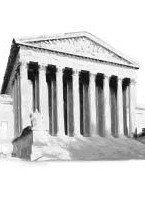Rasyonel Ahlak Geleneğinin Tarihselci Bir Yorumu Olarak MacIntyre’ın Erdem Etiği
MacIntyre, Aristotelianism, Virtue Ethics, Community, Tradition
MacIntyre's Virtue Ethics as a Historicist Interpretation of Rational Moral Tradition
MacIntyre, Aristotelianism, Virtue Ethics, Community, Tradition,
___
- Aristotle (1915). Magna Moralia Ethica Eudemia (trans. W. D. Ross, M. A.). Oxford: At the Clarendon Press.
- Aristotle (2009). The Nicomachean Ethics (trans. David Ross). Oxford: Oxford University Press.
- Bauman, Z. (2016). Postmodern Etik (çev. Alev Türker). İstanbul: Ayrıntı Yayınları.
- Bernstein, J. R. (1983). Beyond Objectivism And Relativism: Science, Hermeneutics, And Praxis. Philadelphia: University of Pennsylvania Press.
- Behhabib, S. (2007). Situating the Self Gender, Community and Postmodernism in Contemporary Ethics. Cambridge: Polity Press.
- Sperger, C. M. (2003). Ahlak Felsefesi, Siyaset Felsefesi Sözlüğü (yay. haz. P. Raynaud, S. Rials, ss. 30-41). (çev. İ. Yerguz). İstanbul: İletişim Yayınları.
- Christman, J. (2002). Social and Political Philosophy: A Contemporary Introduction. London and New York: Routledge.
- West, D. (1997). An Introduction to Continental Philosophy. Cambridge: Polity Press.
- Knight, K. (1998). The MacIntyre Reader. Notre Dame: University of Notre Dame Press.
- Kymlicka, W. (2002). Contemporary Political Philosophy An Introduction. New York: Oxford University Press.
- MacIntyre, A. (2007). After Virtue. United States: University of Notre Dame Press.
- MacIntyre, A. (1998). A Short History Of Ethics. London: Routledge.
- MacIntyre, A. (1977). Epistemological Crises, Dramatic Narrative and the Philosophy of Science. Monist, 60, 453-472.
- Mouffe, C. (1993). The Return of the Political. London & New York: Verso.
- Poole, R. (1996). Morality And Modernity. London & New York: Routledge.
- Ross, D. (1995). Aristotle. London and New York: Routledge.
- Sandel, M. J. (1984). The Procedural Republic and the Unencumbered Self. Political Theory, 12 (1), 81-96.
- Zelyüt, S. H. (1997). İki Adalet Arasında Liberal ve Komunitaryan Düşüncelerin Çatışma Alanı. Ankara: Vadi Yayınları. Zelyüt, S. H. (2001). Sunuş: Alasdair MacIntyre. Ethik’in Kısa Tarihi (çev. H. Hünler & S. Zelyüt Hünler). İstanbul: Paradigma Yayıncılık.
- Yayın Aralığı: Yılda 2 Sayı
- Başlangıç: 2002
- Yayıncı: Bursa Uludağ Üniversitesi
Modern Sanatın Doğuşu: Flaneur Figürü ve Aktör-Ressam Manet
Yapay Bilinç Tartışmasında Biyolojik Doğalcı Yaklaşımın Hataları
Kant’ın Aydınlanma Anlayışı: Tarihi Arka Planı ve Aydınlanmada Eğitimin Rolü
Eleştirel Bir Deneme: Heidegger’in Düşüncesi Bağlamında “Logos”a Dair Yeni Bir Karakterizasyon
Atom Teorileri Paradigma Değişimi Açısından Değerlendirilebilir mi?
Vural BAŞARAN, Tarık Tuna GÖZÜTOK
Estetiğin Etik Dönüşü: Jacques Rancière’in Jean-François Lyotard Eleştirisi
Platon’un Etik ve Politik Düzensizliği Çevreleyen Varlık Anlayışı
Dönüşümün İmkânı Olarak Tecrübe: Dewey ve Gadamer’in Bakış Açılarıyla
